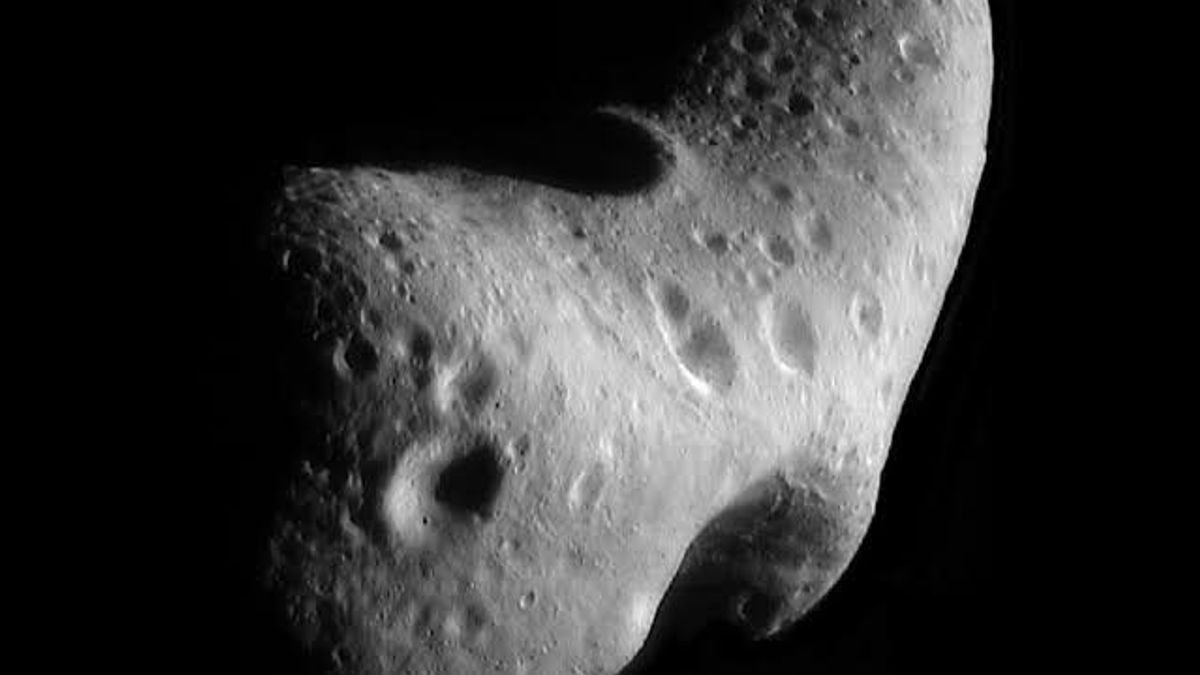
JAKARTA - About 2.5 or 4 billion years ago, which is called the Archean eon, Earth experienced a quite tragic event, where it was often hit by a giant asteroid that caused oxygen levels to decrease.
In a new study, scientists analyzing ancient asteroid debris reveal that Earth is being bombarded by the massive space rock more often than previously thought, resulting in altered oxygen levels in the planet's early atmosphere.
When Earth formed 4.6 billion years ago, it had almost no atmosphere. As the planet cooled, an atmosphere began to form, though originally composed of carbon dioxide and nitrogen, which were not as hospitable to life as it is today.
Earth undergoes major chemical changes at the surface triggered by rising oxygen levels, also known as the Great Oxidation Event (GOE). During the Archean eon, asteroids and comets frequently rained down on Earth.
The space rock, which is about 6 miles or nearly 10 kilometers wide, has a huge impact on the early atmospheric chemistry of the planet's formation, especially on the amount of oxygen.
"Free oxygen in the atmosphere is essential for every living thing that uses respiration to produce energy. Without the accumulation of oxygen in the atmosphere, we probably wouldn't exist," said Harvard assistant professor of Earth and planetary sciences and co-author of the paper, Nadja Drabon.
When an asteroid or comet collides with Earth, it creates a giant plume of vapor. Some of the vaporized rock would then condense and harden, falling back to Earth to form a thin layer of sand-sized particles, also known as impact balls.
The research, recently published in the journal Nature Geoscience, found more tiny, ancient particles that, if not looked at closely, look like ordinary pieces of rock. Scientists analyzed the rock particles to get a better idea of the total number of collision events that occurred in Earth's past.
The new models show the early Earth experienced an impact roughly every 15 million years, which is about 10 times more often than previous models had predicted. Then, the researchers modeled how this meteorite impact would affect Earth's atmosphere, revealing that repeated collisions from objects larger 6 miles across would trigger oxygen uptake which in turn would suck most of the oxygen out of the atmosphere.
The scientists' findings are in line with the current geological record, which shows the early Archean eon was characterized by relatively low oxygen levels. Only about 2.4 billion years ago, when the collision slowed, did oxygen levels in Earth's atmosphere increase, paving the way for life as we know it today. This is quoted from Space, Tuesday, October 26.
The English, Chinese, Japanese, Arabic, and French versions are automatically generated by the AI. So there may still be inaccuracies in translating, please always see Indonesian as our main language. (system supported by DigitalSiber.id)







